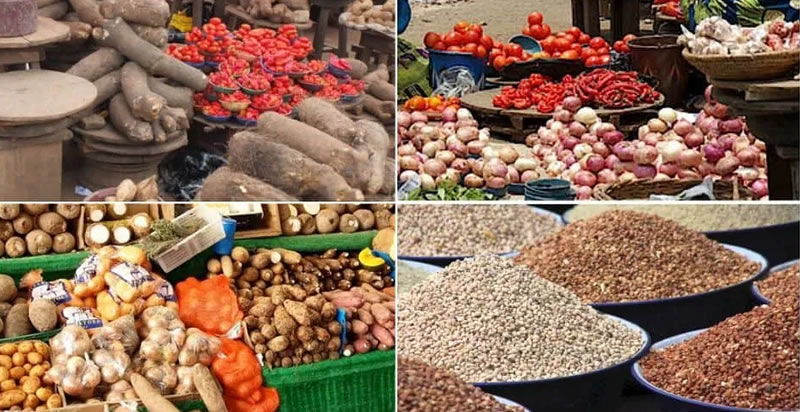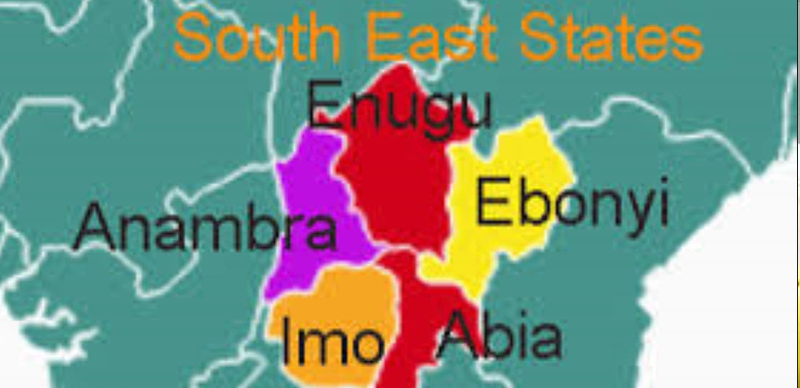Experts across Nigeria have continued to raise concerns over the soaring prices of food items across the local markets as Nigeria’s food inflation continues to skyrocket recording an increase of 23.12 per cent in August from 22.02 per cent in July 2022.
According to figures by the National Bureau of Statistics food inflation rose to its highest level since 2005 when it was 24.56 per cent.
The National Bureau of Statistics said the price of selected food items has increased in the last twelve months.
Its selected food price watch for the month of August 2022 shows that the average price of 1kg beef (boneless) rose by 26.09 per cent on a year-on-year basis from N1,698.18 in August 2021 to N2,141.18 in August 2022.
According to the Bureau, the average price of 1kg of beans (white, black eye, sold loose) rose on a year-on-year basis by 12.94 per cent from N457.98 in August 2021 to N517.23 in August 2022.
Also, on a month-on-month basis, it declined to 5.51 per cent from N547.38 in July 2022.
The report revealed that the average price of sliced 500g bread increased on a year-on-year basis by 33.12 per cent from N366.69 in August 2021 to N488.14 in August 2022.
“On a month-on-month basis, the average price of this item increased by 0.38 per cent in August 2022.” NBS said
Similarly, the data revealed that the average price of 1kg beef (boneless) rose by 26.09 per cent on a year-on-year basis from N1,698.18 in August 2021 to N2,141.18 in August 2022.
In addition, the average price of groundnut oil: 1 bottle, specify bottle stood at N1,087.64 in August 2022, showing an increase of 33.83 per cent from N812.70 in August 2021.
“On a month-on-month basis, it rose by 0.88% from N1,078.17 in July 2022.”
According to the statistics body, the average price of 1kg yam tuber on a year-on-year basis, rose by 32.12 per cent from the value recorded in August 2021 (N305.48) to N403.63 in August 2022.
“On a month-on-month basis, it increased to N403.63 in August 2022 from N389.75 in July 2022 indicating a 3.56 per cent increase.”
In the same vein, the average price of palm oil: (1 bottle, specify bottle) increased by 34.08 per cent from N668.71 in August 2021 to N896.63 in August 2022.
“It also grew by 0.67 per cent on a month-on-month basis.” NBS stated.
Speaking with our correspondent on the impact of this inflation on businesses and the fate of Nigerians in the coming months, A senior lecturer of Economics at the Pan Atlantic University, Dr Olalekan Aworinde, said in terms of individuals, inflation has a lot of evils, which will affect the standard of living of the people because these individuals are fixed, income earners.
According to him, the fixed income earners will suffer during the time of inflation because their incomes do not increase and prices of goods and services will invariably go up which would limit their consumption of the basic necessities.
Also, firms will be producing at a very high cost because they always want to minimize their cost and maximize profit leading to an increase in goods and services rendered to individuals.
“As a result of this, they will also want to transfer the effect on prices they sell to individuals because the individual’s income is constant. The tendency is that there will be a reduction in profit and also a reduction in the total amount of goods that are produced by the firms.
“To the economy, inflation is ideal for growth but the kind of inflation that is ideal for growth should be a single digit inflation but what we are likely going to have is a situation where we have an inflation induced growth, this inflation induced growth is not going to be inclusive. Once the growth is not inclusive, that tells us that it will affect the common man because they will not be able to consume all that they need to consume.”
In the same vein, a professor of Financial Economics at the University of Uyo, Prof. Leo Ukpong, raised concern that traders of these food items aren’t making profits, adding that the aim of venturing into a business is to sell and make profit.
He added that food is a necessity and when the prices increase and the disposable income that people get after paying taxes doesn’t rise, it will lead to a reduction of things not considered necessities by an average consumer.
“So, they must buy food, not just that if you cut down on these necessities like television, going on recreation, going on holidays with the children these are not necessities you can do without them that will drop the sales of those businesses.
“Any business who sells durable goods that are not considered a necessity like foods, their sales will drop and the economy will suffer. Even the foods people buy will become more selective, they won’t buy expensive foods, the food market will also suffer a general increase in prices of necessity which food is one of them, will cost a downward drag on the economy.”







